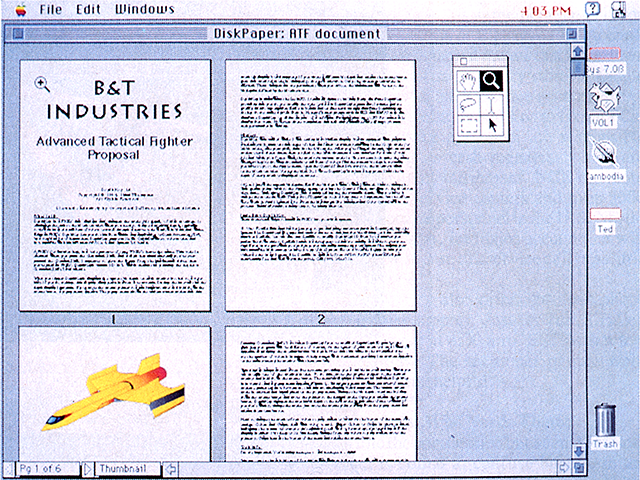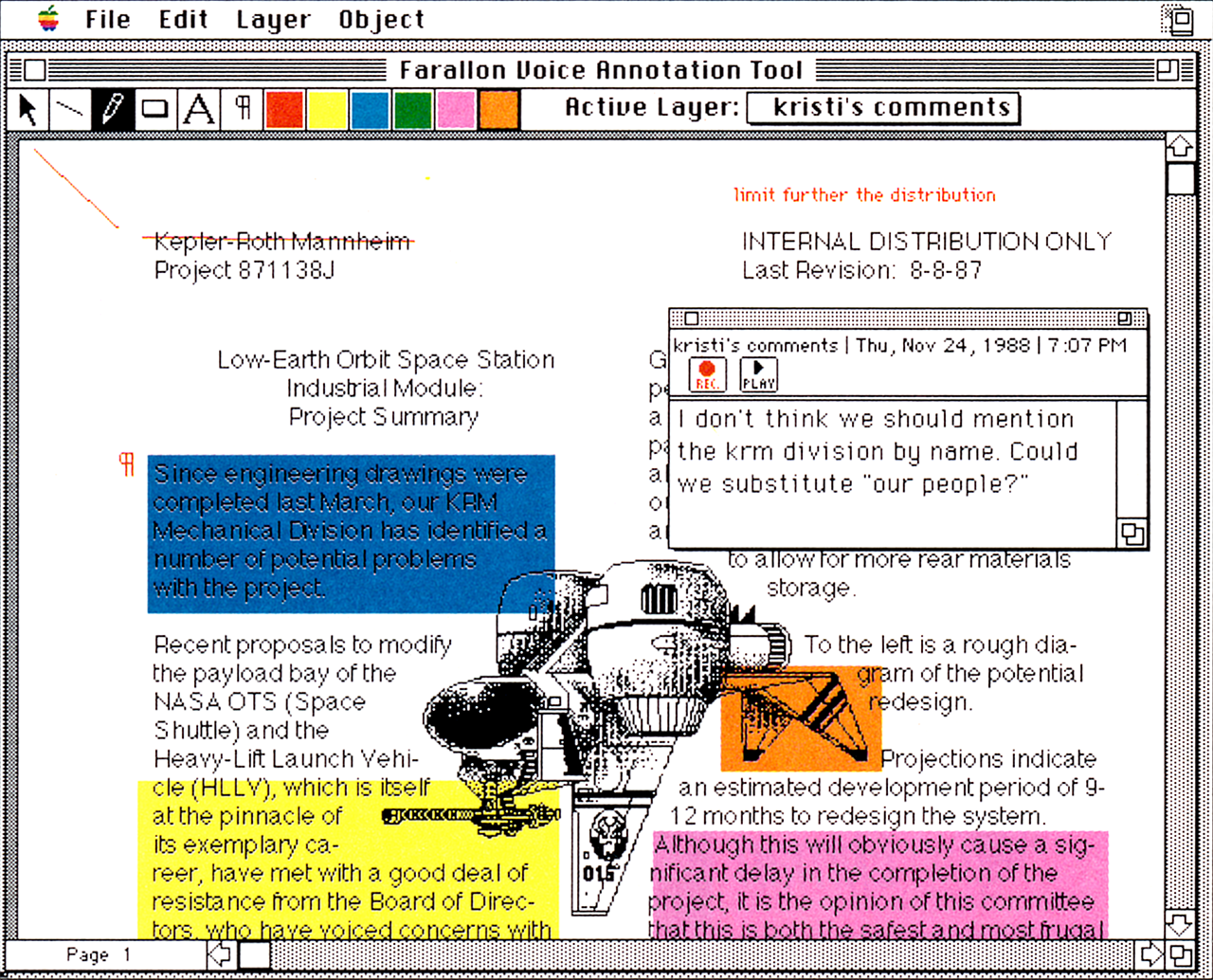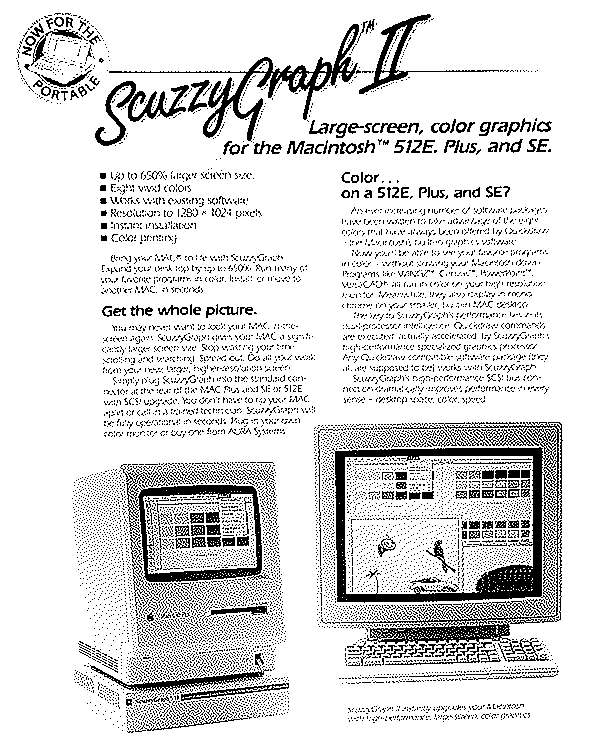Farallon DiskPaper
667 words
7K on disk
October 1990
 Farallon DiskPaper
Farallon DiskPaper

In the Fall of 1990 journalists started mentioning a new product from Farallon: a “print to disk” utility. A precursor to the PDF standard which Adobe would launch in 1993, it was called DiskPaper, and it never shipped.
The phrasing of MacWEEK’s September 1990 headline “You Won’t Need Glue” was a reference to a dominant player in the electronic document space, Solutions Inc’s Glue. CEO Tom Evslin has a great narrative of how that early print-to-disk application came to be; strategic mistakes aside, Glue found usage in a few Apple Developer CDs, and no doubt many other enterprise documentation contexts elsewhere.
Farallon, which was essentially a commercial spin-off of the Berkeley Macintosh Users Group (BMUG), successfully marketed products such as PhoneNET LocalTalk cabling and the MacRecorder/SoundEdit microphone system. Now it sought software revenues, perhaps uncoupled from the overhead costs of designing and shipping hardware.
Other developments in late 1990 also influenced the product. Fresh off the introduction of the Macintosh Classic, LC, and IIsi (the latter two with sound-in and bundled microphones), Farallon may have felt the time was ripe to integrate voice annotations into its new portable documents. As the leading vendor of Mac sound input devices until Apple’s entry, the company was no doubt interested in making up with software what it might soon lose in hardware sales.
The Shadow of Farallon Annotator
Perhaps ominously, Farallon had tried to ship a product in this space before. Their Annotator document markup tool had been under development since at least 1988. Annotator promised to let users “add recorded speech notes if you have Farallon’s MacRecorder” , “something you can’t do with a red pen and a Post-it.”

Annotator was mentioned as late as November 1989, with Macworld’s Dave Kosiur — author of the May preview in the same magazine — assuring readers that “Annotator is actually more than a group editing program, but I won’t go into the distinctions here.” A pity, as it wasn’t untill the apparently imminent launch of DiskPaper ten months later that MacWEEK revealed:
DiskPaper will not offer text annotation capabilities… Instead, DiskPaper will complement Annotator, another program under development at Farallon that lets users annotate documents with sound and text comments. Originally shown by Farallon in 1988, Annotator was later “unannounced” but is still in the pipeline, sources said.
(Annotator never shipped.)
From Annotator to DiskPaper
DiskPaper had a kind of ghostly presence throughout 1991, hitting mail-order software catalogs with a listed price of $88, and even garnered a mention in a March issue of MacUser looking forward to that year’s Eddy Award contenders. Other previews put the list price at $149. Key features that most remarked upon inclued the ability to save documents as self-launching applications — a different model than the free Reader solution that Adobe would eventually settle on — and the notion that files kept their color and fonts intact when distributed.
By the middle of 1993, the market had heated up again with the Acrobat marketing juggernaut. Adobe was promising to do for the screen what PostScript had done for the printed page: provide a universal format for the digital exchange of files authored in different programs and disparate platforms. Competitors knew that they had to get their similar products out immediately, or be swamped by the Adobe juggernaut. No Hands Software [location] had by this time acquired the rights to the underlying “DigitalPaper” technology from Farallon, and released it for the Macintosh as “Common Ground”. (Windows support was promised as well, together with a software viewer for the Newton.)
In place of the Chooser-level PDFWriter, Common Ground offered “CG Maker” as a printer driver for the direct export of files to the new format. Users could choose to password-protect the resulting file, or (synergy alert!) attach a voice annotation to it via MacRecorder.

